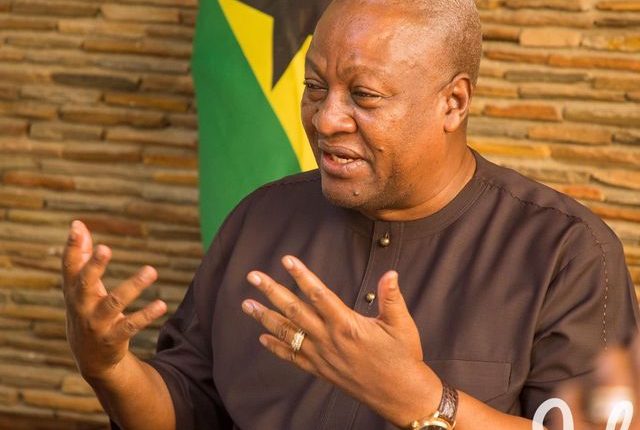In a move that has gained national applauds, President John Mahama has directed all Ministers, Deputy Ministers and appointees of his government to buy and pay for fuel for their own vehicles instead of relying on the State to give them free fuel coupons as has been the practice over the decades.
This directive, the President explained, is part of steps government is taking to reduce the burden on State coffers and the tax payer for that matter.
Spokesperson to the President and Minister for Government Communications, Felix Kwakye Ofosu, announced the new directive in a statement he signed and released on Tuesday July 15 and said the Presidential order takes immediate effect.
The statement noted that: “The directive forms part of a broader curb in government expenditure aimed at cutting cost and channeling public funds into priority areas. The President believes that leadership must also bear its part of the sacrifices it is calling on the people to make.”
Felix Kwakye Ofosu explained further: “The latest cost-cutting measure follows sweeping reductions in the size of government through the appointment of fewer Ministers and Presidential Office staff. Other measures have included stopping satellite TV subscriptions for offices at the Presidency and other government facilities.”
COPEC Happy
Among the growing list of individuals and organisations that have commended the ‘no-free-fuel’ directive from the Presidency is the Chamber of Petroleum Consumers-Ghana (COPEC)
An official statement issued by COPEC and signed by Duncan Amoah, the Chamber’s Executive Secretary said the decision to scrap all allowances for fuel for every appointee of the president is commendable and forward-thinking, albeit a few things will have to be considered forthwith.
COPEC, in the statement suggested that the monies that would have been used in providing fuel for the appointees that has been scrapped forthwith be put into an account and the proceeds of same, be used for specific public projects that will benefit both current and future generations to serve as a testament of the current government’s prudent management and utilization of public resources.
The statement noted further: “We also further encourage the Government to consider the adoption and assembly of electric or solar-powered vehicles for public office holders going forward as has been proposed by the Minister of Energy and Green Transitions.
“The departure from high consuming landcruisers and other vehicles will go a long way in eliminating the need to at any point in time, restore the now scrapped fuel allowances by the current government.
“To end, we want to encourage, the Government to audit the petroleum price build up as some taxes on the current price build up have outlived their purposes and should be removed to give respite in the face of the imminent introduction of the new one Ghana cedis per litre levy which is set to come into effect on the 16th of July, 2025.”
Campaign Promise
Way back in the month of May 2024 when the then candidate John Mahama was campaigning for the December 2024 elections, he met with the EU [European Union] Ambassador to Ghana, and promised that if voted as President, his government would implement cost-saving measures including cutting down incentives to government officials.
John Mahama, during that interaction noted: “We will discontinue the payment of utility bills, fuel, DSTV as conditions of service for top government officials, directors and the political class. We believe that people should take up paying their own electricity bills and water like every other Ghanaian does.
“Unless you are using a government vehicle on government assignment you should buy your own fuel if you are using your own car. And so we are going to discontinue them. Our budget will be to support small businesses and use tax as incentives for job creation.”
He continued: “We want to phase out cash as a form of all payments by 2028, and so for any payment that you have to do for any service that has to do with the public sector and some to do with the private sector, by 2028, we will no longer receive cash.”
“So in the hospital and other places, you would have to use your mobile money to pay. Only electronic forms of payments.”


Comments are closed.